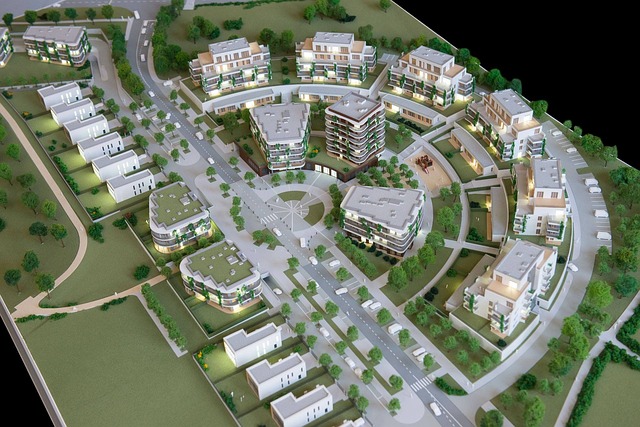Event Planning for Local Businesses emphasizes the importance of understanding and collaborating with the community to create successful events. By identifying unique event needs, analyzing past data, and leveraging digital tools, organizers craft tailored strategies that enhance engagement. A compelling theme, well-structured agenda, effective promotion, and meticulous on-site coordination ensure events captivate attendees and drive business growth. Clear goal-setting and evaluation measure success, providing valuable insights for future events. Through this iterative process, Event Planning for Local Businesses consistently delivers memorable experiences that contribute to a thriving community landscape.
“Unleash the power of local events to boost your business! This comprehensive guide, ‘Event Planning for Local Businesses’, equips you with the tools to orchestrate successful community gatherings. From fostering connections within your local business community to crafting captivating themes and agendas, we explore each step meticulously. Discover proven strategies for promotion, on-site coordination, and measurement, ensuring your events leave a lasting impact. Elevate your brand engagement and drive local success through expert event planning techniques.”
- Understanding Your Local Business Community
- Identifying Successful Event Strategies
- Creating a Compelling Event Theme and Agenda
- Effective Promotion for Maximum Attendance
- On-Site Coordination for Seamless Execution
- Measuring Success and Planning Future Events
Understanding Your Local Business Community

Understanding your local business community is a critical aspect of successful event planning. By fostering relationships with key stakeholders, you gain insights into their needs, preferences, and challenges. This knowledge allows for tailored events that not only attract attendees but also support the growth and collaboration within the community.
Event planning for local businesses requires an empathetic approach. Engage with local business owners, understand their target audiences, and align event themes and activities accordingly. Collaborating with these businesses can lead to mutually beneficial outcomes, ensuring your events are well-received and successful while contributing positively to the local economy.
Identifying Successful Event Strategies

Identifying successful event strategies is a key aspect of event planning for local businesses. It involves understanding the unique needs and goals of each event, whether it’s a grand opening, a community festival, or a networking meetup. By analyzing past events and gathering feedback from attendees, organizers can uncover what works best for their specific audience. This data-driven approach helps in creating tailored strategies that enhance engagement, boost attendance, and ensure the event aligns with the brand identity of the local business.
Event planning software and social media analytics play a significant role in this process. They provide valuable insights into attendee behavior, preferences, and feedback, allowing organizers to refine their strategies over time. Incorporating these digital tools enables local businesses to design events that not only meet but exceed expectations, fostering stronger connections with their community and driving business growth.
Creating a Compelling Event Theme and Agenda

A well-crafted event theme and agenda are the cornerstones of successful local events, particularly those aimed at enhancing business visibility and engagement within the community. For event planning professionals working with local businesses, the goal is to create an experience that resonates with attendees while aligning with the brand’s values and objectives. A compelling theme, for instance, can transform a mundane gathering into a memorable journey, whether it’s transporting guests to exotic locales or immersing them in a world of innovation. This strategic approach not only captivates the audience but also provides a unique platform for businesses to showcase their products or services effectively.
The agenda plays a crucial role in keeping the event on track and ensuring every minute is utilized to its fullest potential. A well-structured agenda balances interactive sessions, informative talks, and networking opportunities. For local business events, this might include workshops tailored to industry trends, panel discussions with thought leaders, or interactive demonstrations showcasing cutting-edge technologies. By intertwining these elements seamlessly, event organizers can foster meaningful interactions among attendees, fostering a sense of community and encouraging potential partnerships. This strategic planning is key to making the most of every event, leaving participants with a positive experience and local businesses with enhanced visibility and new connections.
Effective Promotion for Maximum Attendance

Effective promotion is key to maximizing attendance at local events, especially for businesses looking to boost their visibility and connect with the community. Utilizing a multi-faceted approach, event planners can ensure their initiatives reach the intended audience. Social media platforms offer a powerful tool for generating buzz; creating dedicated event pages and running targeted ads can attract attendees who are actively engaged with these channels. Additionally, leveraging local influencers or community leaders can help spread the word, as their endorsements carry weight within specific demographics.
Email marketing remains a highly effective strategy, allowing businesses to directly engage their existing customer bases and mailing lists. Crafting personalized invitations or newsletters that highlight event details, including unique selling points, can pique interest and encourage attendance. Local press and community newspapers are also valuable assets; pitching stories about the event and securing coverage can attract new audiences and generate excitement, especially when tied to relevant local causes or themes.
On-Site Coordination for Seamless Execution

Local events, whether they’re community festivals or business grand openings, require meticulous on-site coordination to ensure their success. For event planning in local businesses, this involves a dedicated team working closely with vendors, speakers, and volunteers. They must manage logistics like setup and teardown, ensuring each element aligns perfectly with the schedule.
Real-time communication is key; the planning team must be agile, quickly addressing any challenges that arise. This seamless execution is what turns an ordinary event into an extraordinary experience, leaving attendees impressed and local businesses with a powerful marketing tool. Effective on-site coordination becomes the backbone of successful event planning for local communities.
Measuring Success and Planning Future Events

Measuring success is a crucial aspect of event planning, especially for local businesses looking to enhance their community engagement. By setting clear goals and implementing effective evaluation strategies, organizers can gauge the impact and effectiveness of each event. This involves collecting feedback from attendees, analyzing attendance numbers, and tracking key performance indicators (KPIs) such as social media engagement or sponsorship returns. Such data provides invaluable insights for future planning, allowing event coordinators to refine their strategies, cater better to their audience, and ultimately, achieve even greater success.
Looking ahead, the lessons learned from each event become essential building blocks for upcoming initiatives. Event planners can identify what worked well, what needs improvement, and adapt their approaches accordingly. This iterative process fosters continuous improvement in event planning for local businesses, ensuring that every gathering not only meets but exceeds expectations, contributing to the vibrant tapestry of community events.
Local businesses can greatly enhance their community presence and foster growth through strategic event planning. By understanding the local business ecosystem, adopting successful strategies, and implementing well-structured themes and promotions, events can attract substantial crowds. Efficient on-site coordination ensures a seamless experience, while measuring success allows for continuous improvement. With dedicated effort and creative ideas, event planning becomes a powerful tool for local businesses to leave a lasting impression and drive future successes in Event Planning for Local Businesses.



